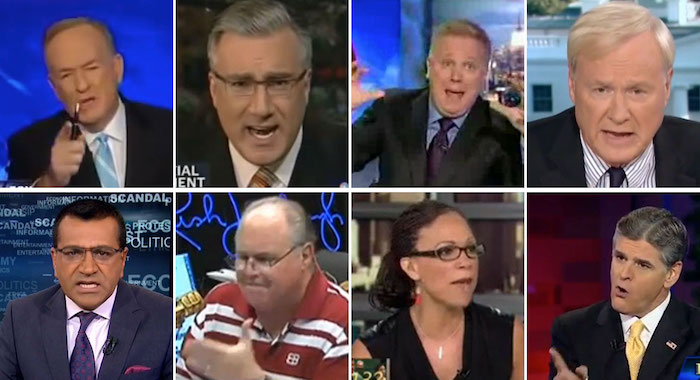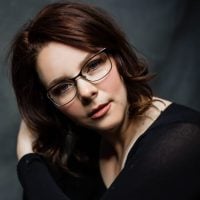
It’s that time again, an election year.
Lines are drawn in the sand and candidates are put forward and we head quickly to the November election.
I’m about to come at you with a whole new way of dealing with politics.
I can’t say I’m the first to think of it generally—every election year some reasonable voice calls out for reform or revolution.
This year, I’m hoping to be one small but effective voice of reason.
Recently, I was held captive during a political discussion. By “held captive,” I mean that I was getting my hair colored while sitting in a salon. I couldn’t leave, and I was subjected to a lengthy angry discourse on politics by several of the staff and customers. Now made myself appear as though I had selective hearing and simply read my book instead of participating, but it got me thinking: Is this really how it has to be?
Are we really so focused on ourselves that we forget that other people have very sincere reasons for feeling the way they do?
Perhaps the other side isn’t actually misinformed.
Maybe they aren’t wrong.
Perhaps, instead, we are all simply informed by our own hearts and by our own specific life experiences.
I’m an advocate of doing independent, academic research from unbiased sources on the issues at hand rather than obtaining my information from biased sources or general hearsay. But I think it’s equally important to remember—particularly before referring to the other half of constituents as stupid, misinformed or uneducated—that people vote based on their own convictions, which are not going to be the same as our own.
Maybe there’s a woman who had an abortion and regrets it deeply, but will still always vote with any side that is Pro-Life; meanwhile, there’s someone else who was raped and had an abortion who will always vote with the side that will protect her reproductive rights.
We don’t know everyone’s story. People can be deeply private, and they may not share the particular struggle that has informed their opinions. Or perhaps they don’t even realize that a specific life experience shaped their opinions so strongly.
There are so many specific issues that make up one’s political identification. Foreign policy, social issues, economics, education, the environment, First Amendment rights. Encapsulated inside of each of these categories are a variety of smaller issues. When it comes to voting, we’re always going to go with our conscience, which is informed by our belief systems, which is informed by our life experience.
So when we attack someone’s politics, we’re attacking that person’s belief system and invalidating their life experiences. No one wants to feel invalidated or that their belief system is being called into question. Everyone has the right to an opinion, but I also believe that everyone has the right to a basic level of courtesy and respect because we are all human beings. Just by recognizing the humanity of others, we can remember to always choose kindness.
For the benefit of this challenging election year, let’s repeat softly: Always choose kindness.
Which brings me to my idea: What if we were to change the political dialogue?
What if we each realized that the other is entitled to their opinion, belief systems and life experiences? We could then open up a dialogue rather than a debate. We could explain why we feel the way we do about life, politics, religion, what-have-you. We could tell it simply from our own life experiences and not in an effort to persuade or condemn others. When we are able to communicate without persuasion or debate, we can then begin to understand each other.
At this point, the essential factor is that we are willing to listen to another person. Instead of considering our next argument, instead we hear them out on the life experiences that brought them to this conclusion. And then, now wait for it—this is just crazy, instead of launching into why this person’s thinking is misguided or just plain wrong, we can try to find some empathy for their life experiences.
Just that. This isn’t the place to try to inform them differently. Instead, this is our opportunity to feel their humanity. Then we may have the opportunity to share our own to someone who is willing to just listen and understand rather than condemn or persuade.
If we attempted this type of communication in every area of our lives, we would certainly see an impact. We could apply it to every aspect of our lives that creates division between us. We could use our words as ways of reaching out to each other rather than as weapons used against one another. We can begin to bring our mindfulness to acknowledging that our own vote will be cast because of the lives that we’ve lead up to this point, and we can also acknowledge that every other vote will be cast in the same way.
It’s not about right or wrong, black or white. It’s not about scoring political points off one another.
If we open up a dialogue that aims for understanding and positive communication, we can begin actually solving some of our world’s problems rather than creating more of them through divisive rhetoric that advances no one and improves nothing. This isn’t a pipe dream. This could start at the personal level, our own personal revolution where we ask others to allow us to communicate in this way. We lead by example, and we begin to teach a new way of addressing our beliefs.
Again—and I cannot stress this enough—this movement starts with me, right now. And it starts with you. It begins with us all, changing the way we talk about the issues.
When we lead and teach in this way, we’re leading from a place of love. We’re guiding one another to a more peaceful future. We’re beginning to put into motion opportunities for coming together to solve our problems. We can come together despite our race or gender, our sexual orientation, our socioeconomic status. We can cast aside the label of our political parties and instead discuss the true issues, each participant trying earnestly not to explain his/her own viewpoint but to understand the viewpoint of the others.
Imagine if every member of Congress listened and tried to understand rather than trying to score points for his or her party or sat around worrying about how best to advance his or her career. What if the dialogue began like this?
I’d like to share with you how I’ve come to believe the way I do about this issue. I’d like to tell you my feelings and how it influenced the way I think about these issues. I would like you to understand where I’m coming from for a moment. I’m not going to tell you why I’m right or why you’re wrong, and I don’t want to be told that my experience isn’t important. Instead, I’d just like to share with you, and then I’d like to listen to what you have to say.
Then maybe we can talk about how best to solve this problem in a way that addresses all of our concerns.
When we remember that our political beliefs are built entirely of our life experiences, we can also remember that every other person shares this foundation. No, we don’t believe the same, but we often come to our way of believing through our experiences, varied as they are. With this thought firmly in mind, we can begin a political discourse, or a religious discourse, without striving any longer to win.
When we are divided by our beliefs, we all lose. Every single one of us. No one is made better when we attack each other. And change on this level starts with individuals. We model it, and we teach it through our own interactions. We share the idea, which is as easy as passing this article on and saying that you think it’s an important idea or just simply sharing with someone else in a message why you think this might be worth a try.
And I’m not going to say that in November we’re going to have this peaceful election. I’m not going to say that everyone is going to follow us, and world peace will be achieved. I will say that we will begin to create positive changes on a small level, and these changes will ripple out in ways that we may never fully understand. It starts with us. It starts with being willing to talk about what is deeply personal in an effort to create understanding. It starts with focusing on how to solve problems.
It starts with turning off our desire to debate and persuade and criticize and ignore one another. It’s as easy as listening with the intent to understand. Because it all begins right here, today, with us.
We are the political revolution we’ve been waiting for.
“Be the change you want to see in the world.” ~ Mahatma Gandhi
Author: Crystal Jackson
Image: Screenshot
Editor: Renée Picard






Read 0 comments and reply